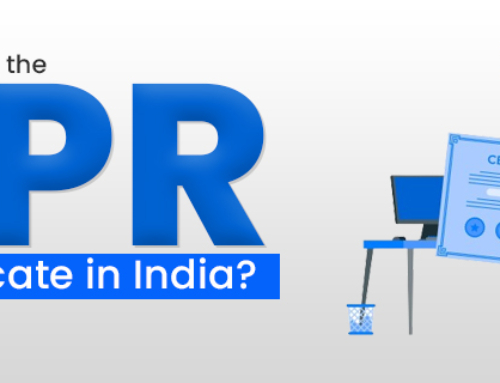The 12 A & 80G serve as two crucial registrations being granted from Income tax authorities to Charitable institutions/Non-Governmental Organizations for facilitating everything within tax exemption as well as permitting deductions upon donations made from donors. The NGO that has undertaken 80G/12A Registration will have greater acceptability of receiving prosperous funding along with several distinct tax reliefs. So, under conditions when you are holding eligibility of such registration, then make sure to register your entity for leveraging upon all benefits.
What are NGOs & charitable institutions?
Contents
- What are NGOs & charitable institutions?
- What is purpose of establishing NGOs?
- What revalidation concept entails?
- What are provisions for NGOs to apply for 80G/12A Registration?
- What benefits NGOs 80G certificates have?
- Who is eligible for 12A & 80 G Certifications?
- Procedures for seeking 80G 12A registration
- What is procedure for seeking 80G registration?
The charitable institutions as well as the NGOs are holding eligibility for certain specified tax exemptions as well as benefits in the nation. The exemptions along with the other benefits needed to be dealt with under section 12A/12AA as well as the 80G, Income tax regulation introduced in the year 1961. So, the charitable organizations will be seeking the advantages under section 12 A/ 12AA as well as the 80 G, income tax act introduced in 1961. The institutions will be seeking the benefits under section 12A as well as 80G for the revalidation of the registrations under two of the sections before the month of August, 2020 to continue to leverage the advantages. The existing religious or charitable institutions or NGOs had to re-apply to the Income Tax authorities for revalidation of the existing registrations.
Read Also This – Is Registration of has Become Imported Paper Mandatory Since Oct 2022
The charitable institutions are not holding eligibility for claiming towards advantages which are extended to them as per the 12A as well as 80G deductions, without any sort of the re validating. This revalidation process focuses on whether the charitable activities of the institution trust, or NGO are genuine or not.
What is purpose of establishing NGOs?
The NGO, a Non-Governmental Organization is not a component of the Government nor is it a traditional profit business entity. Most commonly this has been established by ordinary individuals, who are citizens of the country. The funding of the NGOs is done by the Governmental authorities, foundations, business entities, or private individuals. The NGOS are quite a diverse group of companies & are involved in an array of activities, which can take many distinct forms and can spread all over the globe. So, some of the organizations have acquired charitable status and many other types might be registered for tax exemptions on the basis of the recognition with respect to the social goals. Also, there can be others that will be serving as the front for the political/ religious as well as some other interest groups.
What revalidation concept entails?
The prevailing religious/ charitable organizations/ NGOs need to re-apply to the income tax authorities for conducting the revalidating of the existing registration. Also, the charitable organizations are not capable of claiming the advantages that are rendered to the same under 12 A as well as 8- G deductions, without revalidating. The revalidating procedure will focus on whether all the charitable tasks undertaken by the trust/ NGO are genuine or not.
The revalidation is playing a crucial role owing to the transformation of everything that has been made through the Finance Act, 2020 amendment and this is making it compulsory that the NGOs will be registered as per section 12A/12AA/ 80G, Income Tax Act introduced in year 1961 and this is needed for reapplying online to approve/ registration by the month of August 2020. So, this amendment has been introduced on June 1, 2020.
What are provisions for NGOs to apply for 80G/12A Registration?
What benefits NGOs 80G certificates have?
The Non-Governmental Organizations are established with the purpose of serving the on-profit humanitarian goal with respect to the charitable trust section 8 company as once such kind of entities will be getting registered in the form way, they will be seeking approval from the bunch of the taxation exemptions, advantages, reliefs along with the provision of the tax deductions from the side of the donors as well. So, for that purpose getting an 80G certificate is compulsory. So, any of the income that will be earned by the NGO will be considered as the normal taxable income and this is without consideration with regard to the objective of such income.
So, the NGOs having 12 A & 80 G certificates will be acquiring upgraded commercial value in comparison to other counterparts who are without such certification.
Read Also This – Which are the best PIMS Registration Consultants in Delhi
Who is eligible for 12A & 80 G Certifications?
All the non-governmental organizations that are functioning as the public charitable trust. As per u/s 25th Companies Act introduced in the year 1956, this is applicable for entities that are working only for the purpose of public welfare and only they are eligible for such registration.
Procedures for seeking 80G 12A registration
What is process to obtain 12A registration?
Step 1
The filing of form 10A needs to be done online and all relevant paperwork about the regulations, 17A, Income Tax Act, 1962, and submission needs to be made to the Jurisdictional Principal. The registered NGOs will be holding eligibility for obtaining 12 A registration.
The commissioner will be evaluating all application details and will be asking for any additional paperwork or information in case needed. Also, all the queries will be responded to in a proper way, otherwise application may get rejected.
Once everything is verified and approved, the applicant will be granted 12 A certification for a lifetime for your registered charitable institution.
Now, your establishment is a legally approved NGO with the lifetime provision of tax exemption under Section 12A.
Read Also This – Who can Apply for a Cosmetic Import License in India
What is procedure for seeking 80G registration?
The 80 G certification will be granted according to the rules as well as the regulations of 11 AA income tax, 1962.
Step 1
Filing form 10G
The filing of the 10G form needs to be and also signed by the applicant online along with furnishing the most relevant documentation for the verification of the return of income u/s 140 to the concerned authority as per holding applicability.
Step 2
Verifying paperwork
The concerned authority will be evaluating the application and will be asking for additional paperwork, whenever needed. So, all queries are required to be responded to properly otherwise there will be a rejection of the application
Step 3
Issuing 80 G certification
Upon satisfaction with the application’s standard, importance as well and authentication, the NGO will be granted registration and validation for a lifetime by the Department of Income Tax India.






